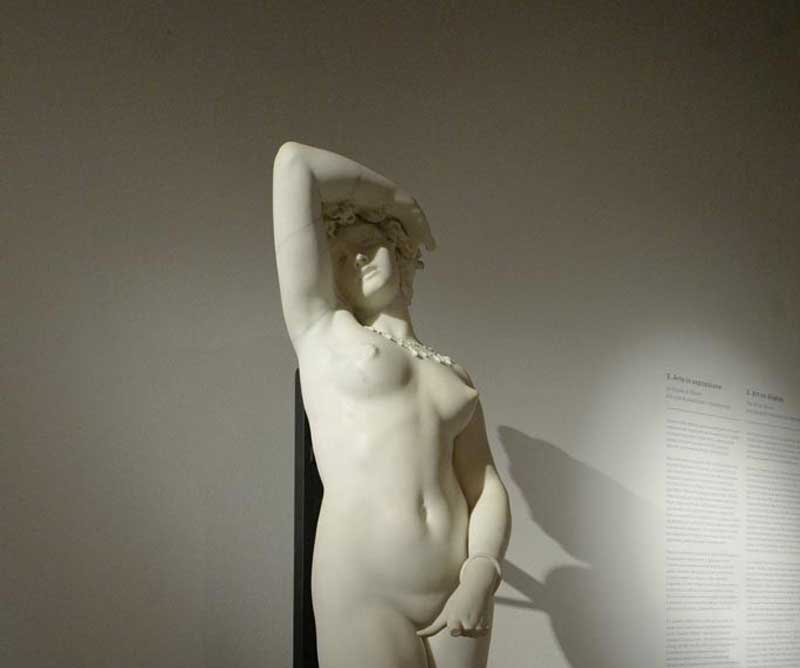
Phryne was an ancient Greek courtesan from the fourth century BC, born in Thespiae (Boeotia), but spent most of her life in Athens. She was named Mnesarete, meaning commemorating virtue, but owing to her yellowish complexion, she was called Phryne, which means toad. As she grew up, she became a beautiful girl and with her stunning looks, she soon became a popular model, posing for various painters and sculptors. Gradually, she became the wealthiest self-made woman in Athens at the time and also the ultimate symbol of freedom against sexism, as well as repression disguised as piety.
However, despite her incredible wealth, power, beauty and prominent clients, Phryne has been remembered throughout the millennia for her dramatic trial which she won by baring her breasts. According to the famous Greek rhetorician Athenaeus, she was prosecuted for a capital offense. Though he did not specify the nature of the charge, some other historical sources state that she was accused of profaning the Eleusinian mysteries, the annual rites performed by the ancient Greeks at the village of Eleusis near Athens in honour of Demeter and Persephone.

According to the accounts of Athenaeus, Phryne was defended by the great orator Hypereides, who was one of her lovers. Despite his rousing speech, when he failed to move the judges, he tore off Phryne’s dress in a daring move, in the middle of the courtroom, just before sentencing, to show the judges her beautiful body. He argued that only god could sculpt such a perfect body and to kill or punish her would amount to disrespect and insult the god.
All the while, Phryne stood unmoved, exposed to the male audience, with slightly tilting head and partially shielding her face in a gesture of modesty. She is revealed, as well as concealed in her posture, creating a tension which is sensuous, alluring and inviting. The unexpected move made the judges speechless and they could not condemn the heavenly beauty to death. Finally, Phryne was acquitted and she walked out the court triumphant.

Created by the Italian sculptor Francesco Barzaghi, the superb life-size marble nude represents the iconic courtesan of ancient Greece Phryne, capturing the electric moment of baring her sensuous body before a bunch of Greek judges at her trial of impiety.
However, it is argued by many critics that, Barzaghi’s Phryne, a masterpiece of 19th century Italian sculpture, derived its composition from ‘Phryne before the Areopagus’, the famous painting by the French artist Jean-Leon Gerome.
